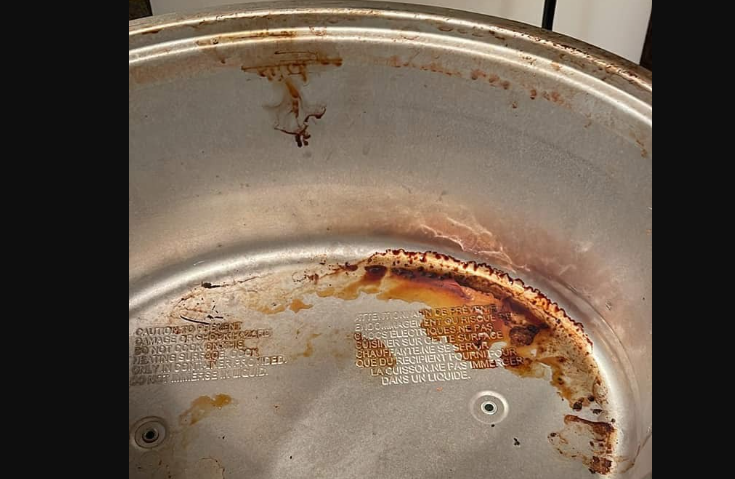After fifteen years of marriage, I committed the kind of error that destroys trust and leaves a permanent wound on the soul — I betrayed my wife. For weeks afterward, guilt consumed me completely. Food lost its taste, sleep abandoned me, and I could no longer meet her gaze. The hidden truth grew heavier each day, turning every exchange into something strained and every shared silence into torment.
At last, the burden became unbearable. I told her everything.
I braced myself for an explosion — raised voices, streaming tears, maybe even the immediate collapse of everything we had built together in our living room. What came instead unsettled me far more deeply.
She never raised her voice. She never flung a single object. She simply fell silent.
Tears traced quiet paths down her face, and then she turned away. In that stillness, pain spoke louder than any scream ever could.
The Distance That Followed The days after my confession carried an unbearable weight. She spoke little. Meals passed without conversation, and the house felt empty even in the warmth of summer. I gave her room, terrified that anything I said might deepen the damage.
Even through the quiet, her sorrow reached me clearly — the deliberate slowness of her movements, the slight tremble in her hands while she washed dishes, the ache in her eyes whenever she believed I wasn’t watching.
I had shattered something irreplaceable, something forged across fifteen years of devotion, shared joy, and trials we had faced together. I had no idea whether it could ever heal.
Then, one morning, everything shifted.
She greeted me with a gentle smile — faint, not yet touching her eyes, yet undeniably kind. That same evening, she prepared my favorite dinner — roasted chicken fragrant with fresh herbs and creamy mashed potatoes, exactly as she had done in the early days of our marriage.
In the weeks that followed, small handwritten notes began appearing on my desk: “Drive carefully today.” “Dinner will be ready at seven.” “I love you.”
At first, I couldn’t understand it. Her steady calm frightened me more than fury ever had. Did these gestures mean forgiveness, or were they a tender way of saying goodbye?
The Appointments Every week, she left the house for “appointments with her gynecologist.” She mentioned it lightly, offering no further details, and I never found the courage to ask. After what I had done, I had forfeited any right to question her.
Still, as the visits continued, worry crept in. Was she unwell? Was something seriously wrong? My imagination tormented me — was she shielding her own pain the same way I once shielded my betrayal?
Guilt tightened its grip. Each time the door closed behind her, a piece of my heart went with her.
The Moment of Truth One quiet evening, the questions finally spilled out.
We sat together in the living room, the soft glow of the lamp filling the space between us. “You’ve been going to the doctor every week,” I said, choosing my words with care. “Is everything all right?”
She studied me for a long moment, her eyes calm and impossible to read. Then a genuine smile slowly spread across her face — warm, radiant, and filled with quiet power.
“I’m pregnant,” she whispered.
The words washed over me like an ocean wave. My breath stopped. Joy, disbelief, shame, fear, and profound humility crashed together inside my chest.
All those weeks of serene strength, of tender notes and thoughtful meals, of protecting her heart while carrying new life… none of it had come from bitterness or calculation. She had been nurturing our child, shielding both of us with extraordinary grace.
The Lesson in Her Forgiveness That night, lying beside her, words failed me entirely. I stared into the darkness, listening to her steady breathing, fully aware of how close I had come to losing everything sacred.
She possessed every reason to walk away. She held every right to close her heart to me forever. Yet she chose mercy instead.
In that moment, I understood the true nature of love. Love has nothing to do with flawlessness or never stumbling. Love reveals itself in the courage to forgive, in the willingness to look past brokenness, and in the decision to rebuild — not because the path is simple, but because the heart refuses to stop loving.
Her forgiveness revealed no weakness. It displayed breathtaking strength — silent, unshakable, and infinitely greater than any consequence I might have faced.
That same night, I promised myself I would become the husband she truly deserved: a man of honesty, deep gratitude, and unwavering patience — someone finally worthy of the woman who transformed devastation into hope.
A Second Chance In the months that followed, I discovered what it means to truly treasure another person. I listened with my whole heart. I accompanied her to every appointment, cooked when exhaustion overtook her, and left my own notes — small daily proofs that I was present, that I was changing.
When our child finally arrived, I cradled that perfect new life in my arms and felt the full depth of her love. She had not merely released the past — she had handed me the opportunity to create a worthier future.
Forgiveness never erases what happened. It never demands forgetting. Instead, it offers a deliberate choice: to embrace hope instead of resentment.
And sometimes, that quiet, patient, grace-filled choice becomes the very thing that rescues a marriage, preserves a family, and redeems a soul.






